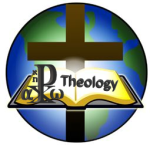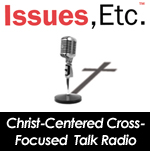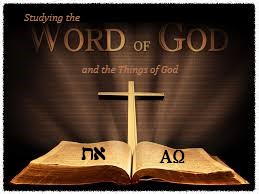 Where are the Lutherans? I’m not asking about those who call themselves “Lutherans.” I’m asking about those who genuinely are Lutherans, not only by their words, but who confess the Lutheran faith, the Christian faith, by their practice.
Where are the Lutherans? I’m not asking about those who call themselves “Lutherans.” I’m asking about those who genuinely are Lutherans, not only by their words, but who confess the Lutheran faith, the Christian faith, by their practice.
To a larger degree today, it seems, more and more are calling themselves “Lutheran” only with their words, whereas their practices strongly indicate otherwise. Their confession of doctrine and practice are greatly inconsistent.
Take for example the joint youth gathering of the North Wisconsin, South Wisconsin, and English Districts, dated for November 11, 2011, ent itled, “L2 Live Loud.” Highlights include a worship band from the LCMS national youth gathering, Bob Lenz (see here about Lenz, Lifest, and The Shack), and youth “testimonies.”
itled, “L2 Live Loud.” Highlights include a worship band from the LCMS national youth gathering, Bob Lenz (see here about Lenz, Lifest, and The Shack), and youth “testimonies.”
Interestingly, “worship bands,” and youth “testimonies” are not historically Lutheran practices. They have as their foundation a different theology, a theology which places greater emphasis on the sinner and less on the Savior.
“Worship bands” often (though not always) play music that drowns out the lyrics (the beat becomes more important than what is actually said). Also, the content of the songs which are sung often lack theological substance and don’t always clearly confess the truth of God’s Word. Rather than glorify God as “contemporary songs” claim to do, many profane God’s Holy Name by not rightly confessing that which is according to Holy Scripture. Indiscriminant use of such lyrics and songs by negligent pastors (and worship leaders) indicates less attention to Word and Sacrament (what God is doing) and more on what man is doing.
One might rightly conclude then that the use of “worship bands” and “contemporary music,” derived from a theology which is foreign to genuine Lutheran Theol ogy[1] is finding greater acceptance in Lutheran circles because genuine Lutheran doctrine and practice (i.e. Christ-centered and using the liturgy and clear hymns and songs which confess Christ and the true doctrine) is believed to be somehow deficient for young people (as well as for the church), though the church is called to be faithful (and in her faithfulness to God’s Word, she is relevant; Jeremiah 23:28; John 14:21, 23; 8:31-32; Revelation 2:10).
ogy[1] is finding greater acceptance in Lutheran circles because genuine Lutheran doctrine and practice (i.e. Christ-centered and using the liturgy and clear hymns and songs which confess Christ and the true doctrine) is believed to be somehow deficient for young people (as well as for the church), though the church is called to be faithful (and in her faithfulness to God’s Word, she is relevant; Jeremiah 23:28; John 14:21, 23; 8:31-32; Revelation 2:10).
Another conclusion one might make is that being “Lutheran” today doesn’t mean holding to Holy Scripture (the Word of God) as the rule for faith and life and subscribing to the Lutheran Confessions because they are in accordance with Holy Scripture, but believing and doing whatever one believes to be right (Judges 21:25). A great lack of genuine ecclesiastical supervision over doctrine and practice remains ever prevalent in our congregations, districts, and church body.
Youth “testimonies,” like “worship bands,” have also as their foundation a nonLutheran theology. If testimony here meant in accordance with the true doctrine, that is, a witness or confession of that which is according to the Word, well and good. But more often than not, testimonies are more about the person giving the testimony rather than God’s grace, mercy, and forgiveness in Christ. The center, once again, is on the one giving the testimony rather than on the Giver of all things.
 Rather than attend such a youth gathering that only advocates nonLutheran theology and nonChristian practices, better to be in the Word of the living God, hear the Word preached in truth, and receive the blessed Sacrament of the Lord’s very body and blood. Better to stay away from false teaching and erring teachers (Romans 16:17-18); better to remain Lutheran, that is, Christian, and faithful Christ, than giving up the truth for popularity and acceptance.
Rather than attend such a youth gathering that only advocates nonLutheran theology and nonChristian practices, better to be in the Word of the living God, hear the Word preached in truth, and receive the blessed Sacrament of the Lord’s very body and blood. Better to stay away from false teaching and erring teachers (Romans 16:17-18); better to remain Lutheran, that is, Christian, and faithful Christ, than giving up the truth for popularity and acceptance.
The Christian faith is too precious to “play” or experiment with. True doctrine is not ours to change or altar. It is only ours to confess, and to confess by what we say and by what we do, whether it be as God’s people gathered for worship (Divine Service) or throughout the week.
[1] Genuine Lutheran Theology and Practice centers on what Christ has done (and does) for sinners. The center of worship (Divine Service) is Word and Sacrament, Christ giving His gifts of forgiveness, life, and salvation.
Filed under: Christian Denominations & Fellowship, Justification & Sanctification, The Christian Faith & Good Works, LCMS (The Lutheran Church--Missouri Synod), Worship & Liturgy | Tagged: Contemporary, District, Divine Service, L2 Live Loud, North Wisconsin, South WIsconsin, Youth |










[…] L2 Live Loud – Theologically sound? (pastorreeder.wordpress.com) Advertisement GA_googleAddAttr("AdOpt", "1"); GA_googleAddAttr("Origin", "other"); GA_googleAddAttr("LangId", "1"); GA_googleAddAttr("Autotag", "religion"); GA_googleAddAttr("Tag", "christian"); GA_googleAddAttr("Tag", "confessional-lutheran-lcms"); GA_googleAddAttr("Tag", "debate"); GA_googleAddAttr("Tag", "issues"); GA_googleAddAttr("Tag", "lcms"); GA_googleAddAttr("Tag", "lutheran"); GA_googleAddAttr("Tag", "worship"); GA_googleAddAttr("Tag", "christ"); GA_googleAddAttr("Tag", "contemporary-worship"); GA_googleAddAttr("Tag", "jesus"); GA_googleAddAttr("Tag", "lutheran"); GA_googleAddAttr("Tag", "lutheran-church-missouri-synod"); GA_googleAddAttr("Tag", "lutheranism"); GA_googleAddAttr("Tag", "theology"); GA_googleFillSlot("wpcom_sharethrough"); Rate this: Share this:Like this:LikeBe the first to like this post. This entry was posted in Christian, Confessional Lutheran (LCMS), Debate, Issues, LCMS, Lutheran, Worship and tagged Christ, Contemporary Worship, Jesus, Lutheran, Lutheran Church Missouri-Synod, Lutheranism, Theology by brvanlanen. Bookmark the permalink. […]